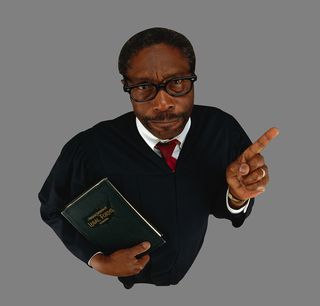 Frank Underwood is not a real person. He’s the crooked politician portrayed by Kevin Spacey in the Netflix series “House of Cards” who claws his way into the White House by manipulating the press and ruthlessly crushing anyone that might get in his way. But sadly, with one line, he delivered more honesty than I have seen from any president, senator or House representative, from either party, in my lifetime: “We’ve been crippled by Social Security. By Medicare. Medicaid. Welfare. And entitlements. And that is the root of the problem. Entitlements. Let me be clear: You are entitled to nothing.”
Frank Underwood is not a real person. He’s the crooked politician portrayed by Kevin Spacey in the Netflix series “House of Cards” who claws his way into the White House by manipulating the press and ruthlessly crushing anyone that might get in his way. But sadly, with one line, he delivered more honesty than I have seen from any president, senator or House representative, from either party, in my lifetime: “We’ve been crippled by Social Security. By Medicare. Medicaid. Welfare. And entitlements. And that is the root of the problem. Entitlements. Let me be clear: You are entitled to nothing.”
Frank Underwood, Kevin Spacey’s character on House of Cards, gives us the cold, hard truth about retirement. Social Security and Medicare are not “rights” in any legal sense. Congress decides on the payout, and Congress can change it—or eliminate it—at any time. You really are not “entitled” to anything and certainly nothing is guaranteed, according to a recent Forbes article titled “Life Lessons From House Of Cards: "You Are Entitled To Nothing".
You are entitled to nothing. It’s not fun to hear, but it’s important to remember when you’re planning your retirement. You should plan under the assumption that your benefits in retirement will be lower than currently promised. With that in mind, here are three specific recommendations from the article’s author on how to approach your planning:
 Houston Estate Planning and Elder Law Attorney Blog
Houston Estate Planning and Elder Law Attorney Blog










